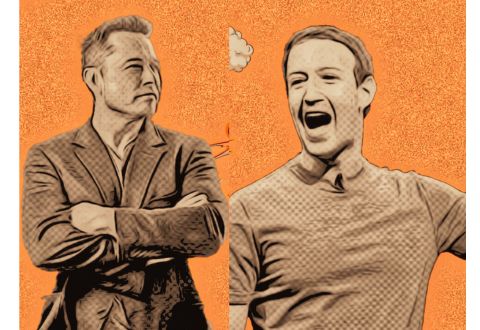Meta’s Threads: A Windfall from Elon Musk’s Twitter Overhaul?

The online social media landscape has become a battleground, witnessing a new, ferocious tussle between two giants: Twitter and Meta. This conflict stems from the swift and dramatic success of Meta’s latest product, Threads, and Twitter‘s subsequent allegations of corporate espionage. An important question, however, emerges from the background of this contention: did Elon Musk’s seemingly harsh decision to fire the majority of Twitter’s workforce provide Mark Zuckerberg and his company, Meta, with a colossal business opportunity?
Threads’ Thunderous Debut and Twitter’s Accusations
When Meta unveiled its messaging app, Threads, as a direct rival to Twitter, the application’s quick uptake surprised many. With more than 30 million users registering in under 24 hours, Threads threatened to outpace even OpenAI’s ChatGPT as the fastest downloaded consumer app at launch. However, Twitter was quick to allege that Meta’s success was a result of foul play.
Twitter’s lawyer, Alex Spiro, accused Meta of “systemic, wilful and unlawful misappropriation of Twitter’s trade secrets and other intellectual property”. The core of these allegations rests on the claim that Meta hired multiple former Twitter employees, alleged to have retained confidential Twitter information and documents, to develop Threads. However, Meta, through its communications director, Andy Stone, refuted this claim, stating that no former Twitter employees were part of the Threads engineering team.
Regardless of the truth of these allegations, it’s clear that Threads’ debut has ruffled feathers and raised important questions about competition, intellectual property, and employee mobility.
Musk’s Cutbacks and the Birth of a New Opportunity
Elon Musk, the tech maverick known for his disruptive approach, acquired Twitter in a $44bn deal last October. Shortly after, he embarked on a severe cost-cutting spree, reducing Twitter’s workforce by about 80%. This move, combined with disruptive changes to the product and its policies, incited criticism and led to a palpable exodus of users and advertisers. The question thus arises – did Musk’s cutthroat decision inadvertently pave the way for Meta’s potential success?
By reducing Twitter’s workforce so drastically, Musk might have unknowingly cultivated an untapped reservoir of talent for Meta to draw upon. These laid-off employees, rich in experience and knowledge, could provide invaluable insights into creating a competing platform. Whether or not these employees were directly involved in Threads’ development, as Twitter alleges, is a contentious matter. Still, it seems plausible that Musk’s decision to fire Twitter employees could have indirectly given Zuckerberg a golden opportunity.
Was Elon Musk’s Approach Wrong?
Criticism of Musk’s approach to his acquisition and reformation of Twitter has been plentiful. His decision to enforce disruptive changes with little warning or explanation, and his swift reduction of Twitter’s workforce, have been perceived as rash and perhaps unnecessarily ruthless.
While it’s difficult to definitively label Musk’s actions as wrong or right, given the complexity of running a social media giant, it’s clear that his approach has had significant repercussions. Not only has his management style driven away some users and advertisers, but it has also arguably provided an opportunity for competitors like Meta to seize the moment.
As the situation continues to unfold, with Twitter demanding Meta cease any use of allegedly misappropriated trade secrets and Meta denying any wrongdoing, one can’t help but ponder the dynamics of the tech industry. Regardless of the outcome of this dispute, one thing is for certain: the face of social media is changing, and the giants are wrestling to define its future.



